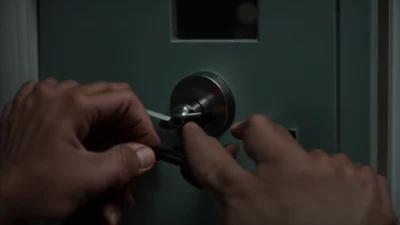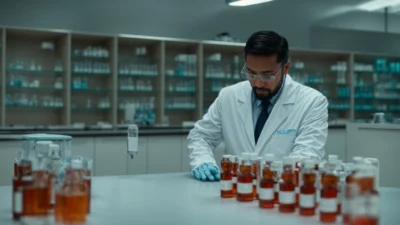Safe and Drug-Free Repetitive TMS Treatment Options
Questions Answered in This Article:
- What Is Repetitive TMS?
- How rTMS Helps with Depression and OCD
- What to Expect During Treatment
Mental health treatment is always advancing, and one of the most promising breakthroughs is Repetitive TMS. This non-invasive, drug-free approach uses transcranial magnetic stimulation (TMS) to help people with major depressive disorder (MDD) and obsessive-compulsive disorder (OCD) find lasting relief. A widely used form of TMS, called repetitive transcranial magnetic stimulation (rTMS), is approved by the Food and Drug Administration (FDA) and supported by strong clinical research.
At Scottsdale TMS Therapy, we provide expert care using proven repetitive TMS treatments for those who haven’t improved with antidepressant medications. Many patients find that Repetitive TMS offers new hope when other therapies fall short. If you’re ready to explore a safe, effective option for depression or OCD, Repetitive TMS may be the breakthrough you need.
What Is Repetitive TMS?
Repetitive TMS (rTMS) is a form of TMS treatment that uses a magnetic coil to deliver gentle, repeated pulses to areas of the brain responsible for mood and emotional regulation. These pulses help stimulate underactive brain regions commonly seen in people with depression and OCD. The term “repetitive” refers to the regular pattern of stimulation used during each session.
This treatment is non-invasive and does not require sedation, surgery, or hospitalization.
Patients remain fully awake during each session and can return to normal activities right after. With consistent sessions, repetitive TMS can support long-term improvement in mood, focus, and overall mental health.
How rTMS Helps with Depression and OCD
Repetitive TMS depression protocols have shown strong results in treating major depressive disorder (MDD), especially for individuals who haven’t improved with medications or talk therapy. Research, including randomized controlled trials, confirms that rTMS treatments can significantly reduce symptoms and support long-term recovery. This therapy is also effective for obsessive-compulsive disorder (OCD) by targeting overactive brain circuits responsible for compulsive behaviors and intrusive thoughts.
Benefits of rTMS for depression and OCD:
- Can reduce or eliminate symptoms
- Often works when antidepressants don’t
- No major side effects like weight gain or tiredness
- Backed by clinical research and strong clinical outcomes
With consistent treatment, many patients experience meaningful relief and improved quality of life. rTMS offers a safe, science-backed path forward for those struggling with depression or OCD. It continues to grow as a trusted option in modern mental health care.
What to Expect During Treatment
A full treatment course of transcranial magnetic stimulation (TMS) usually involves daily treatment sessions over four to six weeks. Each session lasts about 20 to 40 minutes.
Here’s what happens during a session:
- You sit in a comfortable chair
- A trained provider places the magnetic coil on your head
- The coil sends short bursts of energy to specific brain areas
- You may feel a tapping sensation, but it should not be painful
These pulses help the brain improve how it processes emotions, thoughts, and behaviors. Over time, the effects of rTMS build up, and many patients start to feel better within the first two weeks.
Key Differences Between Deep TMS and rTMS
Deep transcranial magnetic stimulation (Deep TMS) and repetitive TMS (rTMS) are two effective options for treating depression and OCD. Deep TMS uses a specialized coil that reaches deeper brain regions, while standard rTMS focuses on surface-level areas of the brain. Both approaches are non-invasive and have been shown to produce positive results in clinical settings.
Deep TMS vs repetitive TMS:
- Deep TMS reaches further into the brain
- Standard repetitive TMS focuses on surface-level areas
- Both are safe and effective, depending on your condition
At Scottsdale TMS Therapy, we evaluate each person’s needs to determine the best treatment option. Whether deep TMS or rTMS is right for you depends on your specific symptoms and response to previous therapies. Our team is here to guide you with expert care and personalized support.
Long-Term Effects and Safety of rTMS
The long-term effects of repetitive TMS have been encouraging for many patients, with lasting improvements that often extend for months or even years after completing a full treatment course. Some patients benefit from booster sessions to help maintain their progress over time. Overall, rTMS is recognized as a safe and well-tolerated treatment option.
Like all treatments, repetitive TMS side effects can happen, but they are usually mild.
Possible side effects include:
- Scalp discomfort during or after treatment
- Mild headache
- Feeling lightheaded (rare)
While some mild repetitive TMS side effects may occur, such as scalp discomfort, headaches, or rare lightheadedness, these usually resolve quickly. Unlike electroconvulsive therapy (ECT), TMS treatments do not cause memory loss, confusion, or require recovery time. This safety profile makes repetitive TMS a preferred and comfortable option for many individuals seeking relief.
Benefits of Choosing Scottsdale TMS Therapy
At Scottsdale TMS Therapy, we provide trusted and effective treatments in a caring, supportive environment. Our experienced team develops personalized plans tailored to each patient’s unique needs. We focus on delivering science-backed care that leads to proven clinical outcomes.
Patients appreciate our comfortable and private treatment setting along with a compassionate staff who supports them throughout their journey. Whether you are new to transcranial magnetic stimulation (rTMS) or have tried other therapies before, we are dedicated to helping you move forward. Our goal is to guide you toward lasting mental wellness with expert care every step of the way.
Repetitive TMS Can Change Your Life for the Better
Repetitive TMS is transforming mental health care by offering a new path to healing for those suffering from major depressive disorder, anxiety, and obsessive-compulsive disorder (OCD). Backed by years of research and FDA approval, this treatment provides hope when other methods have failed. Scottsdale TMS Therapy offers FDA approved treatment plans designed to help you recover safely and effectively.
If you or a loved one is struggling, our compassionate team is ready to support you. Recover from depression, anxiety, and OCD with personalized repetitive TMS treatments that do not rely on medication. Contact Scottsdale TMS Therapy today at (480) 841-9279 to take the first step toward reclaiming your life.









